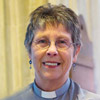The Village Shepherd
The Eye-Witnesses
Sermon
Parents are generally very protective of their children, and this has to be a good thing. But just occasionally, parents fail to strike quite the right balance and some become over-protective whilst others become under-protective. This slight imbalance can cause problems when the children are young, especially when they're just starting out in school and are beginning to show a little independence of their own.


